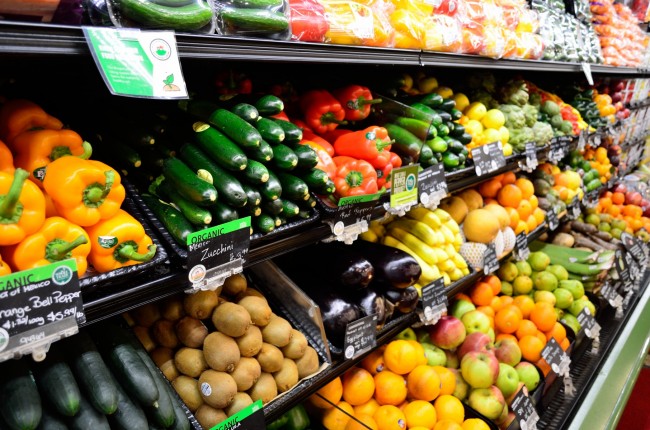
Is Old Food the New Food?

Take a good look at the image above. Would you eat that fruit?
You’re probably thinking to yourself, “Why wouldn’t I? It looks normal.” But this produce is not considered normal. This is the type of food that goes unsold and gets thrown out of supermarkets everyday because of its bruises and spots.
The produce above is typically rejected because of the taboo surrounding the beauty standards of our food. No crooked carrots, no speckled potatoes, no bruised apples. Once produce has reached a certain date, or varied in color, it gets tossed out — even when it’s perfectly edible.
Food waste is a growing problem facing America, and the world. Forty percent of produce in the United States goes uneaten and, as a result, the USDA estimates losses of $15 billion. If food waste in the United States was reduced by just 15 percent, 25 million Americas could be fed each year.
Ex-President of Trader Joe’s, Doug Rauch, is trying to change just that. He noticed that there was a surplus of food going to waste. Supermarkets were throwing out perfectly edible, nutritious food that didn’t sell because of its looks or its date.
Rauch’s newest supermarket model, Daily Table, receives donations from food suppliers and markets and sells the reclaimed goods at inexpensive prices.
At the moment, Daily Table is only located in Dorchester, Mass., but plenty of similar, no-cost models, such as Foodsharing and Lebensmittelretter, have been up and running in Europe for years.

Rejecting imperfect food is not just wasteful; it’s also detrimental to the environment. The UN estimates that half of the water used to produce this food also goes to waste. In addition, “organic waste is the second highest component of landfills, which are the largest source of methane emissions” in the United States.
The environmental effects are such a cause for concern that France has taken legislative initiatives. Large French grocery stores are now required to donate food that is leftover, rather than just letting it go to waste. The bill was originally introduced in May 2015 as a means to mitigate hunger and discourage food waste, but gained more attention in December for environmental concerns. The bill was said to be a “crucial matter for the planet” and passed quickly and unanimously.
If the United States follows in France’s footsteps, more supermarkets like Daily Table could be cropping up throughout the country and put the country on track to reduce food waste.
(Photo by Till Westermayer)












.jpg)





